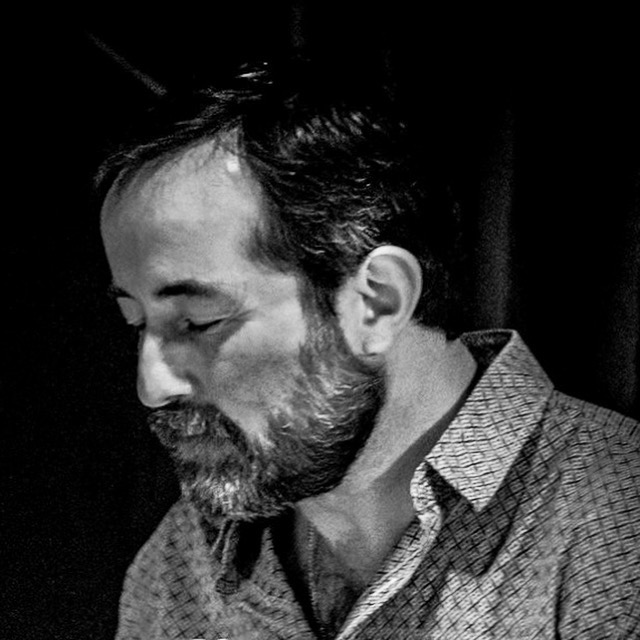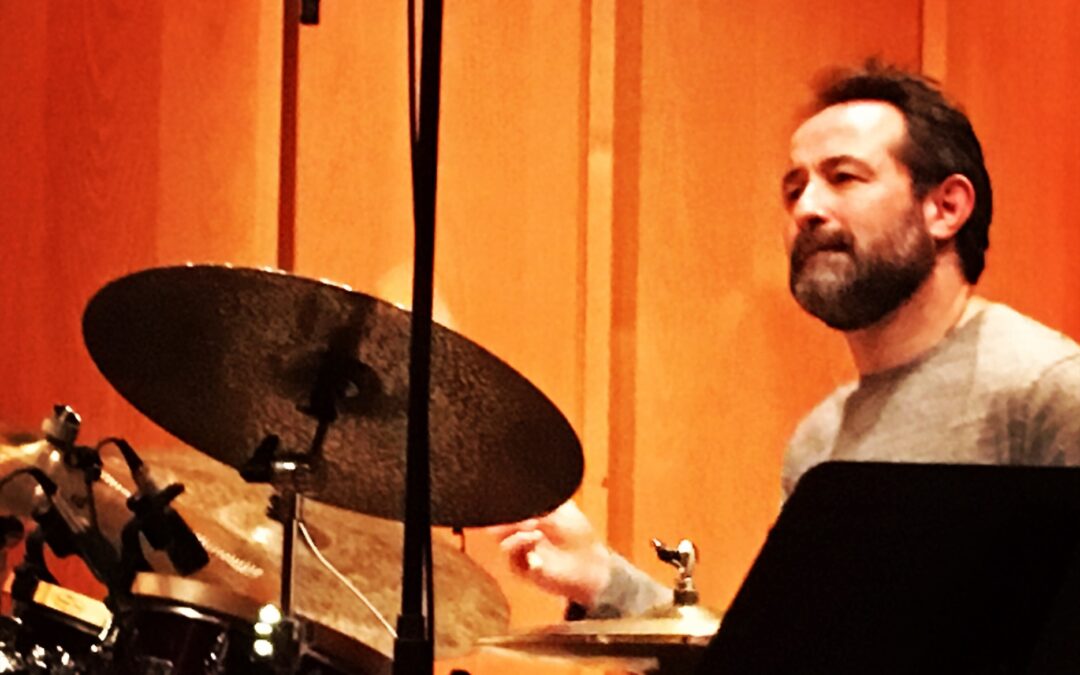NIU School of Music Professor of Jazz Studies Rodrigo Villanueva has been awarded a Fulbright U.S. Scholar Award to spend four months in Brazil researching Afro-Brazilian rhythms and teaching at two universities, the Universidade Estadual de Campinas (May 1 through June 30, 2022) and Universidade Federal de Pernambuco (July 1 through August 31, 2022). In addition, Villanueva will compose music for drums and percussion based on Afro-Brazilian rhythms, and will write a compendium of Brazilian rhythms for drumset. The title of this ambitious project is “Cracking the Afro-Brazilian Rhythmic Code.”

Credit: Leiko Napoli
“As director of the NIU Jazz Ensemble, I have discovered the need for exploration and greater understanding of the vast array of rhythms from Brazil. Through my experiences in this role, as well as in teaching jazz courses, coaching bands in other schools and clinic ensembles at jazz festivals, I have realized that it is my duty as an educator to expand my students’ knowledge and awareness of music styles from other cultures of the African diaspora,” Villanueva said.
As a visiting scholar, Professor Villanueva will teach jazz and Afro-Cuban drumset, and jazz arranging, and he will coach jazz ensembles at both UNICAMP and USPE. “This provides the opportunity to serve as an ambassador, bridging the cultural gap, and connecting North and South American cultures through musical exchange.”
In addition to teaching, Professor Villanueva said his research process will be to seek out some of the finest drummers in Brazil. “Brazil has a very musical culture. Almost everyone I have met in my previous trips to Brazil plays an instrument or sings. Music is everywhere, and percussion is a big part of it. An important part of my project includes studying with legendary Brazilian drummers. Learning the wonderful rhythms of this culture will allow me to elevate Brazilian music genres in the U.S., by incorporating them into my compositions, my arrangements, and of course, in my own playing style. Learning and documenting as many of these rhythms as possible will enable me to publish a compendium of Afro-Brazilian grooves, along with a series of sequenced etudes for drums focused on the Afro-Brazilian rhythmic patterns that are least familiar to North Americans. The solo drumset compositions and percussion ensemble pieces will be geared toward high school and college level percussion students.”
As a Fulbright Scholar, Professor Villanueva will share knowledge and foster meaningful connections across communities in the United States and Brazil. Fulbrighters engage in cutting-edge research and expand their professional networks, often continuing research collaborations started abroad and laying the groundwork for forging future partnerships between institutions. Upon returning to their home countries, institutions, labs, and classrooms, they share their stories and often become active supporters of international exchange, inviting foreign scholars to campus and encouraging colleagues and students to go abroad. As Fulbright Scholar alumni, their careers are enriched by joining a network of thousands of esteemed scholars, many of whom are leaders in their fields. Fulbright alumni include 60 Nobel Prize laureates, 86 Pulitzer Prize recipients, and 37 who have served as a head of state or government.
The Fulbright Program is the flagship international educational exchange program sponsored by the U.S. government, and is designed to forge lasting connections between the people of the United States and the people of other countries, counter misunderstandings, and help people and nations work together toward common goals. Since its establishment in 1946, the Fulbright Program has enabled more than 390,000 dedicated and accomplished students, scholars, artists, teachers, and professionals of all backgrounds to study, teach and conduct research, exchange ideas, and find solutions to shared international concerns. The Fulbright Program is funded through an annual appropriation made by the U.S. Congress to the U.S. Department of State. Participating governments and host institutions, corporations, and foundations around the world also provide direct and indirect support to the Program, which operates in more than 160 countries worldwide.

